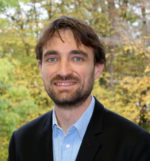Quantum Computing – An International Challenge
 © iStockphoto
© iStockphoto
In recent years quantum computing has made a huge leap from being perceived as a science fiction to a reality. Until quite recently it has only been a vision of few experts, but has since come to the awareness of even mainstream media.
However, to most the implications and potential impact of quantum computing are still vague. Partly this is because the laws of quantum physics are far from intuitive, and at the same time the development of quantum computing and its applications might be the most complex technological challenge to date. Nevertheless it seems clear that quantum computing will go way beyond just faster classical computing in its possibilities.
While first examples of quantum supremacy(1) could be shown in very academic problems, quantum computers are starting to solve small real-world problems. However, even noting that these can still be calculated classically, we are nevertheless witnessing the dawn of this amazing new technology. At the same time a lot of research and development is still necessary to achieve a quantum advantage in real world applications over classical computing. (1)Quantum Supremacy indicates that quantum computing can solve some computational problems for the first time, or much faster than classical approaches.

“Quantum computing will have an enormous impact on science, economy and society. Hopefully, we can ensure that the world benefits by collaborating globally on its development.”Prof. Dr. David Di Vincenzo Head of Institute for Theoretical Nanoelectronics (PGI-2), Institute for Advanced Simulation (IAS-3) and JARA-Institute Quantum Information (PGI-11), Forschungszentrum Jülich
Prof. Dr. David Divincenzo was a guest speaker for the DWIH New Delhi’s Indo-German Symposium on Quantum Science and Technologies from 9th-10th February 2020 at Indian Institute of Technology (IIT), Madras.
International research investments
Many studies world-wide attest to an enormous economic potential for the applications of quantum computers. Access to quantum computing will become crucial for all economies, somewhat comparable to supercomputing for simulations and data analysis today. Currently some groups or rather companies are leading the field due to the gigantic amounts of available public and private investments they can make: Foremost these are American tech companies, but also Chinese research programs. The studies on the economic potential of quantum computing clearly agree that those with early access to the new technology will have a huge and lasting advantage. Therefore, Europe has announced a billion-dollar flagship research program on quantum computing, and Germany will also invest about 2 billion into a national quantum computer development program.
Quantum computing research in Germany
Today, most German companies are potential users of quantum computers. Therefore, it is crucial for Germany and Europe to ensure technological sovereignty in this important field and to be able to operate quantum computers under European data protection laws. Europe and Germany are still at the forefront of quantum science research. Nevertheless, investments from companies are only minor. The German initiative on Quantum Computing will specifically target to accelerate the transfer from academia into industry. This addresses all aspects from quantum hardware, periphery, software, applications and training for very different quantum hardware platforms to efficiently identify the most promising technology. This holistic approach is crucial, as ne should not forget that with the currently most favorable technologies for quantum processors, the “quantum-part”, is not the only technological challenge: The periphery of the quantum processor involves a lot of classical high tech with a lot of potential for development. This includes cryo-technology and cryo-electronics, control- and readout electronics as well as all levels of software. These in themselves are R&D challenges with potentially huge markets beyond quantum computers.
Forschungszentrum Jülich, a German flagship institute
Forschungszentrum Jülich is determined to play a leading role in the development of a national and European quantum computer together with national and international partners from academia and industry. The Helmholtz center is one of Germany’s biggest interdisciplinary research centers, situated in a region with strong university partners in e.g. Cologne, Aachen, and Bonn. It combines leading expertise in quantum materials and quantum information research (Peter Grünberg Institute) with excellent engineering capabilities (Central Institute of Engineering, Electronics and Analytics) and one of the world’s leading supercomputing centers (Jülich Supercomputing Centre). With this unique combination of expertise, it was chosen to host and operate the quantum computer developed in the European flagship project OpenSuperQ. Researchers from different institutes at Forschungszentrum Jülich are coming together to develop a full stack quantum computer, involving materials optimization for Qubits, integration, system scaling, as well as software development and applications. Our strategy is to work together with strong national and international partners, contributing excellent knowledge and providing leading research infrastructure and methods. We investigate different solid state qubit approaches of varying maturity, to develop prototype quantum processors which will be made available to researchers, via the Jülich Supercomputing Centre (JSC), to build an early-user community. Furthermore, JSC operates and provides access to different quantum computer systems as a user facility and works on the early integration of quantum computing devices into a modular supercomputing architecture.
International Cooperation at Forschungszentrum Jülich
Forschungszentrum Jülich is a multidisciplinary research center that works together with numerous partners from science and industry at the national and international level. Among the scientifically and strategically most important partners at the moment are RWTH Aachen University, the French Commissariat à l’Énergie Atomique et aux Énergies Alternatives (CEA), Oak Ridge National Laboratory (ORNL) in the USA, the Moscow Institute of Physics and Technology (MIPT) in Russian Federation, and the Chinese Academy of Sciences (CAS) in China.
Forschungszentrum Jülich aims to foster fostering long-term cooperations between individual Jülich institutes and Indian partners from science, research, and industry, and offers support in exchange programs for excellent young scientists.
Contact:

Dr. Jan Timper
Head of PGI-Science Office, Forschungszentrum Jülich
Email: scienceoffice@fz-juelich.de
More Information
Click here for more updates on quantum research in India and Germany.
